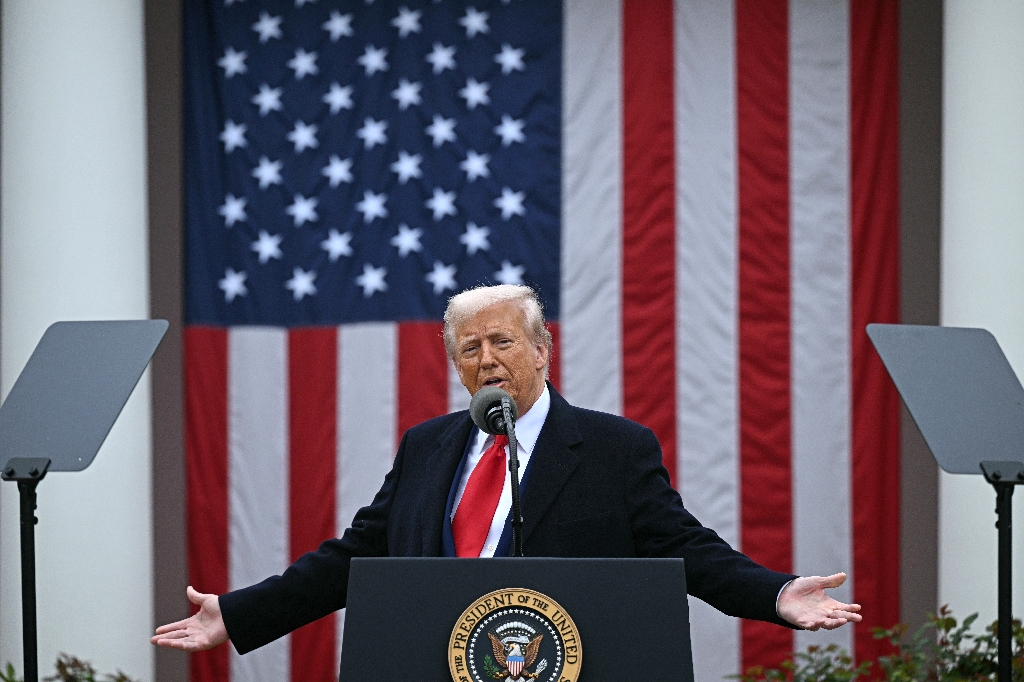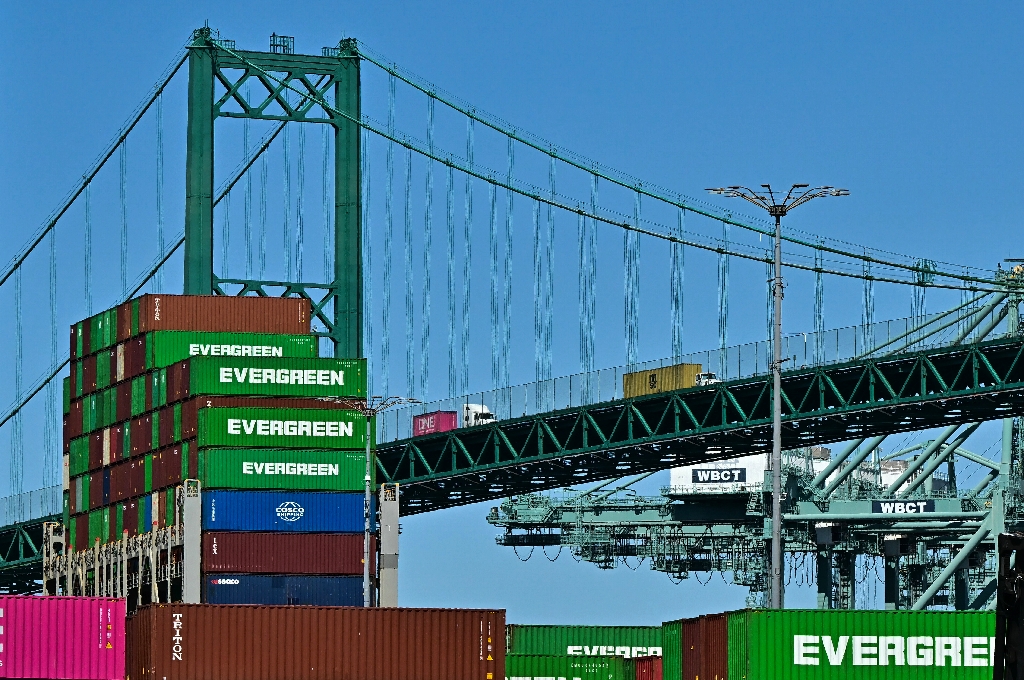(AFP) – The political circumstances that surrounded the publication of “Ultimatum,” once a best-selling novel that imagined an American effort to annex Canada, may ring familiar to anyone following recent headlines. A US leader announces tariffs on Canadian imports, signaling a more confrontational relationship, and a prime minister named Trudeau scrambles to respond. But the American, in this case, was former president Richard Nixon and the Canadian leader was Pierre Elliott Trudeau — the father of Prime Minister Justin Trudeau. Nixon and the elder Trudeau are long dead, but the author of “Ultimatum,” published in 1973, is D-Day veteran Richard Rohmer, the honorary lieutenant general of the Canadian Armed Forces, who recently turned 101.
Still an avid news consumer and writer, Rohmer told AFP that remarks by President-elect Donald Trump implying that Canada could be absorbed by the United States should not be laughed off. “This man has to be taken seriously,” he said. “He is a man with great imagination who has ideas about what he can do and what he cannot do, and as far as Canada is concerned.” Trump mocked Trudeau this week as the “governor” of a state, rather than prime minister of the giant US neighbor — a taunt beyond any seen during Trump’s first term. The president-elect’s jibe followed Fox News reports that, in talks with Trudeau in Florida, he had suggested that if Canada could not withstand his threat to impose 25 percent tariffs on Canadian imports, then it should be absorbed as the 51st US state.
While some analysts dismissed the barbs as “Trump being Trump,” it hit a sensitive nerve in Canada. Days after meeting Trudeau, Trump posted an AI-generated image showing himself standing high atop a mountain next to a Canadian flag, gazing forward. Former Quebec premier Jean Charest responded on X by tartly cautioning Trump to “think twice before invading Canada.” Charest recalled the War of 1812, when US advances on Canadian territory ended in defeat — and the torching of the White House.
Yet not everyone in Canada views US annexation as a terrible idea. A poll by the Leger research firm conducted after Trump’s comments found that 13 percent of Canadians would like the country to become a US state, with support strongest among men and Conservative Party supporters. Trudeau has not publicly responded to Trump’s taunts. An op-ed piece in the Toronto Star said Trump was behaving “like a toddler,” and the prime minister was wise not to “rise to the bait.”
For Laura Stephenson, chair of the political science department at Western University, Trump’s musings amount to an escalation compared to a tariff threat. “We’re in a different world now. Annexation isn’t the same as ‘I’m going to hurt your industry.'” Even if an active confrontation with the US remains unthinkable, Stephenson told AFP that such mockery can be “humiliating” to Canadians. She said many Canadians identify themselves explicitly as “not American,” and Trump’s poking at the issue “has all sorts of implications for Canadian identity.”
University of Toronto political scientist Renan Levine, on the other hand, suggested Trump’s ribbing could be a “good sign” for Canadians, as it implies a bond with Trudeau. “He’s basically signaling, ‘I have a certain level of comfort with you and we can exchange wisecracks,'” Levine told AFP. Rohmer said the moment calls for patriotism. The success of his book “Ultimatum” came at a curious time in Canadian fiction, with a flurry of books, including a novel by acclaimed author Margaret Atwood, exploring conflict with the US. Rohmer said his book likely tapped into a thirst for national pride that Canadians crave but are notorious for suppressing.
Deputy Prime Minister Chrystia Freeland responded to Trump’s mockery by saying “Canada is the greatest country in the world” — while adding that such a boast was not “appropriately Canadian.” When asked if he thought Trump’s insults should prompt Canada to assert its strength, Rohmer said: “I think we should, but I have no idea how.”
– Ben Simon
© 2024 AFP




